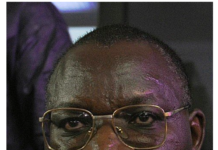On February 9, 2024, the Democratic Republic of Congo (DRC) government took a significant stance by prohibiting the national football team, the Leopards, from participating in any solidarity activities initiated by the Confederation of African Football (CAF). This decision emerged from a council of ministers meeting held on the same day, led by President Félix-Antoine Tshisekedi. The move is a direct response to two main grievances: the reduction of allocated space for Congolese supporters during the semi-final match of the African Cup of Nations (CAN) and the denial of entry to those carrying banners protesting Rwandan aggression against the DRC.
The controversy unfolded at Alassane Ouattara stadium during the 34th edition of CAN’s semi-final against Ivory Coast, where Congolese fans faced restrictions. The government spokesperson, Patrick Muyaya, detailed President Tshisekedi’s disapproval of the treatment towards the Congolese supporters, particularly the limited space in the stands and the prohibition of entry with protest materials against Rwandan aggression. As a consequence, the DRC government has decided to suspend the national team’s participation in CAF solidarity activities indefinitely.
Furthermore, the council of ministers issued a stern warning to the French media outlet, FRANCE24, over its coverage of the CAN, which, according to the government, tarnished the image of the DRC.
Critics, however, offer a different perspective on the government’s decision. Bienvenue Matumo, an activist from the youth movement Lutte pour le Changement (LUCHA), criticized the decision as lacking in geopolitical analysis and understanding of the dynamics among international actors. Matumo highlighted the familial connection between CAF President Patrice Motsepe and South African President Cyril Ramaphosa, noting Ramaphosa’s influence within the Southern African Development Community (SADC) and its military support for the DRC against the M23/RDF rebels. Matumo suggests that the DRC government could have leveraged its connections within the CAF, including the Congolese chief of staff to Motsepe, to address its concerns more diplomatically.
































































